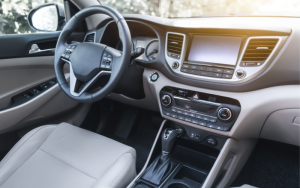
The Nobel Prize, one of the most prestigious awards in the world, has always been surrounded by anticipation and speculation. As the date for the 2023 Nobel Prizes announcement nears, the scientific community is rife with predictions and expectations. In this digital age, where artificial intelligence (AI) has made significant strides in various domains, the question arises: Can AI predict Nobel Prize winners?
Santo Fortunato, a renowned network scientist at Indiana University Bloomington, decided to put this question to the test. He turned to one of the most advanced AI chatbots of our time, ChatGPT. This chatbot, known for its ability to produce realistic answers to a myriad of queries, was posed with the challenge of predicting this year’s Nobel laureates. However, ChatGPT, with its vast knowledge, humbly admitted its limitations, stating it couldn’t predict the future, including the Nobel Prize outcomes.
Not deterred by this initial setback, Fortunato decided to approach the problem differently. He asked the AI to identify major discoveries in the fields of chemistry, physics, and physiology or medicine by living scientists who hadn’t yet been honored with a Nobel Prize. To ensure a comprehensive approach, his students also consulted Google’s AI chatbot, Claude, with a similar query.
The results were intriguing. Both ChatGPT and Claude were able to pinpoint significant scientific breakthroughs, such as the revolutionary genome-editing tool CRISPR and the groundbreaking discovery of the 2D material graphene. However, the chatbots’ responses weren’t without flaws. They occasionally suggested discoveries that had already been acknowledged with a Nobel Prize or even mentioned scientists who had passed away.
James Evans, a computational social scientist from the University of Chicago, weighed in on the experiment. He believes that while the current versions of large language models (LLMs) like ChatGPT and Claude might not be the perfect tools for predicting Nobel Prize winners, they certainly hold promise. With the right modifications, training, and data, these models could potentially become powerful forecasting tools in the future. Interestingly, the idea of using data to predict potential Nobel laureates isn’t new.
Clarivate, an analytics firm, has been employing citation analysis for this purpose. Their methodology, which has accurately forecasted over 70 Nobel winners in the past twenty years, revolves around identifying researchers with papers that have garnered at least 2,000 citations. This year, their list spotlighted contributors to pioneering fields like cancer immunotherapy, synthetic biology, and materials science. Clarivate is also keen on harnessing the power of AI to refine its prediction process further.
However, using AI in this domain isn’t without challenges. Historical biases, such as the gender disparity in Nobel laureates, could be inadvertently perpetuated by AI if not addressed during the training phase. Only 60 women have been awarded Nobel Prizes since their inception, a stark contrast to their male counterparts. Addressing and rectifying such biases is crucial for a fair and inclusive prediction model.
David Pendlebury, from Clarivate, emphasizes the irreplaceable role of human judgment in the Nobel selection process. While AI can provide valuable insights and data-driven predictions, the final decision requires a nuanced understanding and appreciation of groundbreaking contributions, something that, according to Pendlebury, gives the Nobel Prize its unique charm. In conclusion, the intersection of AI and the Nobel Prize prediction is a fascinating realm.
While current AI models might not be ready to take on the mantle of predicting winners accurately, with continuous advancements in technology and a conscious effort to address inherent biases, they might play a significant role in the future. As AI continues to evolve, it might not only assist in predictions but also introduce new, more inclusive award categories, reshaping the landscape of scientific recognition.
Journal Reference
Conroy, G. (2023). Can AI predict who will win a Nobel Prize? Retrieved from https://www.nature.com/articles/d41586-023-03074-7












